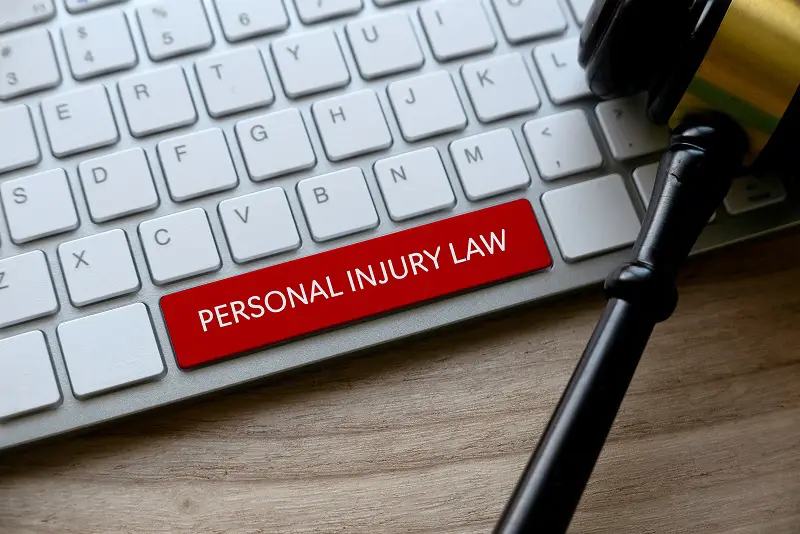If you or your loved one has been injured in California, it can be overwhelming to pursue legal action, especially if you don’t know what steps to take. The nature of each personal injury case can vary and even the amount of settlement is not set on stone.
According to Huntington Beach Personal Injury Attorney Travis Easton, injuries from water-related accidents, traffic, and entertainment attractions are far too common in Huntington Beach. With out of town visitors in the mix, the settlement negotiations may lead to a more complex jurisdictional and insurance issues.
In this article, we’ll look at the crucial aspects that determine the outcome of a case. These elements, when considered collectively, play an important role in the final settlement. They are central to personal injury law, and understanding their significance is essential for anyone involved in such cases.
If you’re involved in a personal injury case, whether it’s related to an accident, medical malpractice, or any other incident, read on to equip yourself with the knowledge you need to navigate this often complex legal terrain.
Severity of the Injury
Your injury will directly impact the amount of compensation you receive, so the more severe it is, the greater the potential for a significant settlement. When determining the settlement amount, insurance companies and courts take into consideration the severity of your injury and the impact it has on your life.
A catastrophic injury lawyer can help determine the amount of settlement you can get for life-altering and serious injuries such as traumatic brain injuries or spinal cord injuries. These injuries often require extensive medical treatment, long-term rehabilitation, and may even result in permanent disability. These factors can greatly increase the value of your claim.
On the other hand, minor injuries, such as sprains or cuts that heal quickly, may result in lower settlement offers.
To maximize your settlement, it’s crucial to provide medical records and expert testimonies that clearly demonstrate the severity and long-term effects of your injury.
Degree of Negligence
The degree of negligence refers to the level of fault or responsibility assigned to the person or party who caused your injury. In personal injury cases, the more negligent the other party is deemed to be, the higher the potential settlement amount may be.
If the other party’s negligence is clear and undeniable, it can strengthen your case and increase your chances of receiving a larger settlement.
On the other hand, if there is evidence of shared negligence or contributory negligence on your part, it can potentially reduce the amount of compensation you may receive.
It is important to gather all necessary evidence and work with a skilled attorney to establish the degree of negligence and maximize your chances of a fair settlement.
Medical Expenses and Treatment
When assessing your personal injury claim, insurance companies and courts take into account the costs of medical treatments, including hospital stays, surgeries, medications, therapy sessions, and rehabilitation.
The severity of your injuries and the length of your treatment play a crucial role in determining the value of your settlement. Future medical expenses may also be considered, especially if your injuries require ongoing care or if they’ve caused permanent disabilities.
Keep detailed records of all medical expenses and treatment received, including bills, receipts, and medical reports, to support your claim and ensure you receive fair compensation for your injuries.
Loss of Income and Future Earning Capacity
When determining a personal injury settlement, the loss of income and future earning capacity is a crucial factor taken into account.
If your injury prevents you from working temporarily or permanently, it can have a significant impact on your financial stability. The settlement should consider your current income loss and also take into account potential future income loss due to the injury.
This includes factors such as missed work days, reduced work hours, and even the need to change careers.
The settlement should consider any potential limitations or disabilities that may affect your ability to perform certain types of work. It is important to provide documentation and evidence of your current and potential future income loss to ensure a fair settlement.
Emotional and Psychological Impact
Personal injuries aren’t just physical; they can take a substantial toll on your emotional well-being. Dealing with a personal injury can lead to a range of negative emotions such as depression, anxiety, and even post-traumatic stress disorder (PTSD). The trauma of the accident and the resulting injuries can disrupt your daily routine, relationships, and ability to enjoy activities you once loved.
The pain and suffering you experience can take a significant toll on your mental health, making it difficult to concentrate, sleep, and handle stress. Seeking therapy or counseling is crucial in order to address these emotional and psychological effects and work towards healing.
It is important to factor in the emotional and psychological impact of a personal injury when determining the settlement amount, as it plays a significant role in your overall well-being and recovery process.
Conclusion
It’s vital to understand these five pivotal factors that affect the outcome of your personal injury settlement. The severity of your injury, degree of negligence involved, medical expenses and treatment, loss of income, and emotional impact are all pieces of the puzzle in determining your compensation.
Remember that your well-being and justice are intertwined. Seek professional guidance and support to navigate the complex legal landscape.
Your physical and emotional recovery, along with securing a just settlement, are paramount. The road to healing may be challenging, but with the right approach and support, justice can be achieved.

